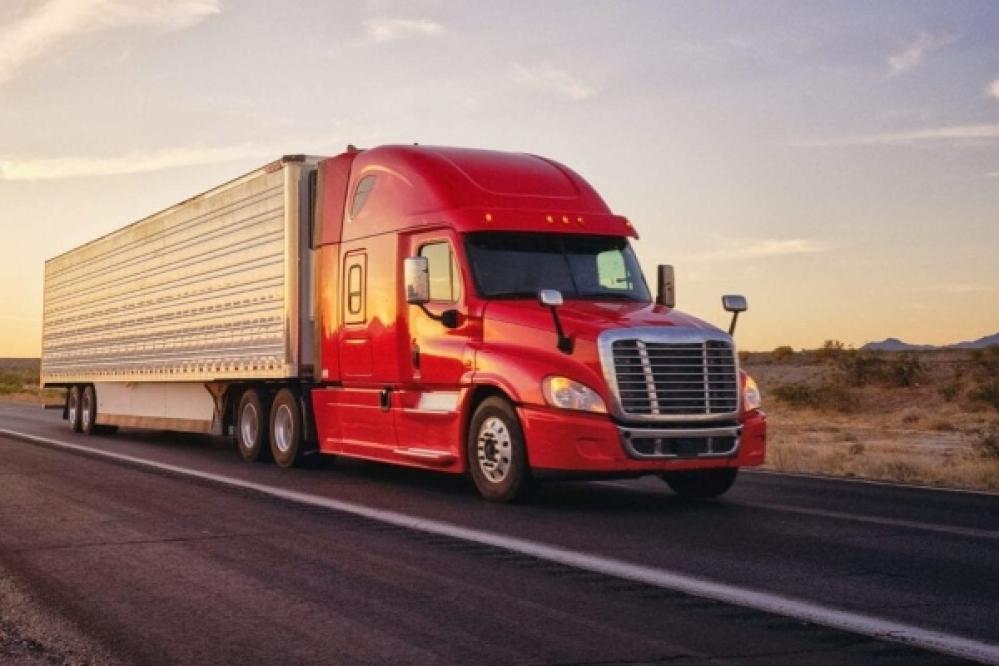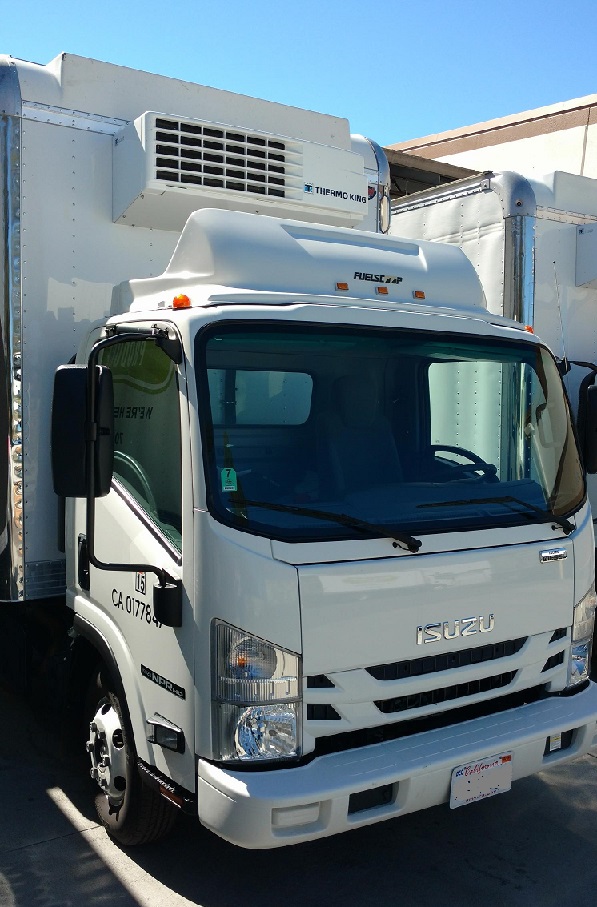Refrigerated Transportation Thermo King: The Ultimate Remedy
Refrigerated Transportation Thermo King: The Ultimate Remedy
Blog Article
Leading Technologies in Transport Refrigeration: Enhancing Effectiveness and Safety And Security
The landscape of transport refrigeration is undertaking substantial makeover, driven by developments aimed at boosting both performance and safety and security. As these innovations proceed to progress, it is vital to discover their effects on operational techniques and regulative compliance, motivating a closer evaluation of just how they reshape the future of transport refrigeration.
Smart Temperature Level Keeping An Eye On Equipments
In the realm of transport refrigeration, smart temperature tracking systems have actually become an important technology for ensuring the integrity of temperature-sensitive goods. These innovative systems take advantage of Net of Points (IoT) innovation to provide real-time information on temperature level variations, making it possible for operators to preserve optimum problems throughout the supply chain. By continuously tracking the temperature of chilled containers and lorries, firms can swiftly identify inconsistencies that might endanger item top quality.

In addition, wise tracking systems usually incorporate automated informs and notices, allowing stakeholders to respond immediately to any prospective problems. This positive approach not just decreases the danger of perishing yet additionally improves conformity with governing requirements governing food safety and security and pharmaceutical transport.
The combination of information analytics within these systems additionally facilitates predictive upkeep, helping operators to visualize potential equipment failings before they occur. This capacity decreases downtime and maximizes operational efficiency, eventually causing set you back financial savings.
Eco-Friendly Refrigerants
Smart temperature level surveillance systems play an essential role in keeping product top quality, yet the efficiency of transportation refrigeration also rests on the selection of cooling agents used. As ecological issues increase, the change towards environment-friendly refrigerants has actually come to be crucial. Typical refrigerants, such as hydrofluorocarbons (HFCs), are well-known for their high Worldwide Warming Prospective (GWP), adding dramatically to environment adjustment. In contrast, emerging choices like hydrocarbon-based refrigerants and hydrofluoroolefins (HFOs) present reduced GWP alternatives, supplying both effectiveness and sustainability.
These eco-friendly cooling agents not only lessen environmental influence yet also line up with global laws intended at eliminating hazardous compounds. Their fostering can bring about boosted power effectiveness, inevitably decreasing operating costs for transport refrigeration systems. The use of all-natural refrigerants, such as ammonia and carbon dioxide, has actually gained grip due to their superb thermodynamic residential properties and reduced ecological impact.
Purchasing green cooling agents is not simply a governing compliance measure; it represents a tactical decision that boosts brand credibility and promotes consumer commitment. refrigerated transportation thermo king. By prioritizing lasting methods, business can add to a greener future while guaranteeing the stability of moved goods
Advanced Insulation Materials
Utilizing advanced insulation materials is critical for optimizing transportation refrigeration systems, as they significantly improve energy effectiveness and maintain consistent temperature level control. Conventional insulation techniques frequently fall short in protecting against thermal transfer, leading to increased power intake and changing temperatures within refrigerated compartments.
Emerging materials such as vacuum cleaner insulated panels (VIPs) and aerogels offer superior thermal resistance, permitting thinner accounts without endangering efficiency. VIPs, as an example, make use of a vacuum cleaner layer to reduce convective and conductive warm transfer, making them suitable for space-constrained applications. Aerogels, understood for their lightweight and permeable framework, offer phenomenal insulation while dramatically decreasing overall system weight.
Furthermore, including phase modification products (PCMs) into insulation systems can additionally support temperature levels throughout transit. These products take in and release thermal power, properly buffering versus external temperature level variations.
The assimilation of these sophisticated insulation products not just minimizes the operational costs linked with power intake yet likewise expands the service life of temperature-sensitive items. As the transport refrigeration industry proceeds to evolve, the adoption of ingenious insulation technologies will be essential in improving both performance and safety in cooled transport.
Automated Route Optimization
The effectiveness of transportation refrigeration systems is substantially improved through automated route optimization, which leverages innovative formulas and real-time data to determine one of the most reliable paths for delivery. By assessing various factors such as web traffic patterns, weather condition conditions, Continued and distribution windows, these systems can significantly decrease traveling time and gas intake.
Automated route optimization reduces human error and subjective decision-making, which can cause inefficiencies. This modern technology allows fleet managers to designate resources a lot more successfully, making sure that refrigerated goods keep their needed temperature throughout the trip. By optimizing courses, companies can also enhance client contentment via timely shipments.
In addition, automated systems can adjust to unexpected circumstances, such as road closures or unexpected web traffic spikes, allowing for vibrant rerouting. This adaptability not just safeguards the honesty of temperature-sensitive products yet likewise adds to total functional performance.
Applying automated route optimization can lead to significant price savings while reducing the carbon impact linked with transportation. As companies progressively focus on sustainability, this technology sticks out as a critical element in modern transport refrigeration, straightening operational objectives with ecological duty. Ultimately, automated path optimization represents a considerable development in the mission for effectiveness and safety and security in transport refrigeration.

Real-Time Data Analytics
Automated course optimization substantially gain from the combination of real-time data analytics, which gives important understandings right into the performance of transport refrigeration systems. By utilizing real-time information, transportation operators can monitor temperature level fluctuations and equipment performance, making certain that disposable products are preserved within called for criteria throughout transportation. This positive approach not just enhances the quality of the transferred products yet also reduces the danger of wasting and loss.

Along with enhancing effectiveness, real-time analytics boosts safety by making certain compliance with regulative requirements for temperature level control. This not only protects public health yet additionally fortifies a company's credibility - thermo king transport refrigeration. As the transportation refrigeration industry develops, the assimilation of real-time information analytics becomes a cornerstone for driving development, learn this here now sustainability, and functional excellence
Verdict
Finally, the developments in transport refrigeration dramatically enhance both performance and security within the sector. Smart temperature monitoring systems and real-time information analytics supply important oversight, while environment-friendly refrigerants and progressed insulation products add to sustainability and power performance. In addition, automated course optimization formulas not only reduce travel time yet additionally decrease ecological impact. Jointly, these developments stand for an important development in transport refrigeration, ensuring compliance with governing requirements and advertising a greener future.
The landscape of transportation refrigeration is undertaking considerable change, driven by technologies aimed at enhancing both efficiency and safety.Smart temperature level surveillance systems play a vital role in preserving item top quality, yet the efficiency of transportation refrigeration also hinges on the selection of cooling agents used. Their adoption can lead to enhanced energy effectiveness, ultimately decreasing operating costs for transportation refrigeration systems. Eventually, automated course optimization This Site stands for a substantial improvement in the pursuit for efficiency and security in transportation refrigeration.
In conclusion, the innovations in transportation refrigeration considerably enhance both performance and security within the industry.
Report this page